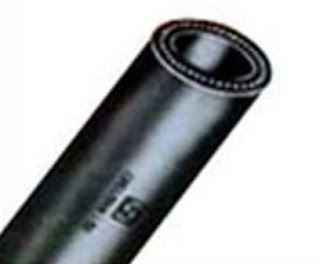 |
| Rubber Hoses |
Because electrical conductivity or
non-conductivity is not a thought for some applications, hose makers don't
generally advertise hose electrical resistance grading. In this case, mostly
people don't consider conductivity when selecting a hose; some people assume that
all rubber hoses are electrically non-conductive. After all, rubber is non-conductive
material, correct?
All things considered rubber hoses can be either electrically
conductive, non-conductive, or partially conductive. Some rubber hoses may be
non-conductive at low voltage, yet conductive at high voltage. It can be
shocking to some; however numerous materials are utilized as a part of the
creation of "rubber" hoses. Such as support layers are normally made
of metal. Additionally, some rubber mixes are electrically conductive.
Unless the hose is depicted as, or particularly and obviously
marked as, either electrically conductive or non-conductive, you must accept
that the electrical properties are not controlled in the manufacturing
procedure. The hose's electrical properties may change with every production
run without notification
Static Electricity in Rubber Hoses
As material moves/courses through a hose, particles impinge
with each other. During the atomic impacts, a few electrons are
"dispatched" and make a small measure of electrical charge (or
electrical potential, measured in Volts). The electrical accuse increments of
the length of the hose gathering, speed of material exchange, material volume
exchanged, and coarseness of the exchanged material and hose's internal tube.
In the event that a non-conductive hose is utilized, the
electrical charge will amass in the hose fitting at the conveyance end of the
hose. On the off chance that the fitting is not grounded, the charge will
continue gathering, until the potential distinction between the charged fitting
and the closest conductive grounded article turns out to be sufficiently high
for the electrons to "bounce" over to the item, making a bend.
Depending on circumstances, the electric curve may touch off
unpredictable materials in the region of the hose, or within the hose.
Conductive Rubber Hose
Metal wire fortification layers and conductive rubber parts
are utilized to make electrically conductive hoses. Electrically conductive
materials avoid friction based electricity development and curve release.
Some types of conductive hoses use helical or static wires.
This methodology can be utilized for electrical continuity; the length of a
strong contact is made and kept up between the wire(s) and the hose end.
Nonconductive Rubber Hose
In a few circumstances, for example, vicinity to high voltage
wires, it is important to utilize a non-conductive hose. In these
circumstances, don't accept that the hose is non-conductive. Numerous dark
compound rubber hoses
are characteristically conductive. Unless the hose is particularly intended to
be non-conductive, don't utilize it. None-conductive rubber hoses are generally
produced to a qualifying standard that obliges it to be tried to check its
electrical properties. Non-conductive hoses frequently highlight shading sleeve
(non-dark), yet not generally.
Try not to utilize non-conductive hoses for any applications
calling for conductive, static dispersing, hostile to static or comparative
prerequisite.
I would have flipped article approach and used "varying level of insulation" instead of partially conductive. (if it is only a little conductive, it is still conductive). On the insulator/resistance approach, you bring the fact that most hose also have highly conductive liquid in them. Therefore the with high voltage relationship between rubber hose as an insulator to liquid inside can be explored. (size of the hose/volume, metal threads in hose, etc. and the liquid inside) Then it leads to indirect caution in placing hoses, just because you know it will have highly conductive liquid inside and chance for leaks. But maybe I am just overthinking your article. :)
ReplyDeleteRubber hoses are known to withstand even the lowest and highest flow of electricity. Knowing the different types of one helps define what to be used in a situation. Have your rubber hoses needs and make a visit at panther now!
ReplyDeleteWith over 40 years of experience in the rubber processing industry, Metro Rubber Corporation is considered one of the top-rated suppliers of Industrial-grade rubber sheets and mats by Industry professionals.
ReplyDeletehttp://rubbersheetindia.co.in